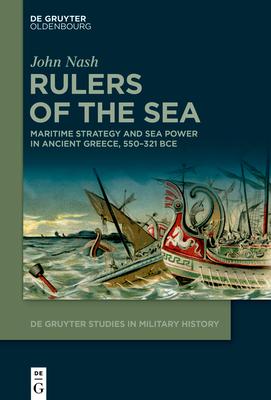This is a study of sea power and maritime strategy in the Classical Greek world. More than just a study of navies and battles, it examines how the sea was used to influence events ashore and how the use of naval power combined with land power had a defining impact on the period. After an examination of the oft-overlooked practical issues of navigation and administration, the book explores the idea of a 'maritime consciousness' in Greece and how this shaped the way the Greeks engaged in war. Naval operations from the Persian Wars down to the rise of Thebes are examined at the operational and strategic level, including a catalogue of the hundreds of different maritime operations from the 5th and 4th centuries BCE. Further, while the great sea power Athens is most prominent, it looks at other city-states to examine how they utilised sea power. This new approach uses modern theory to highlight some enduring lessons of sea power. It demonstrates that Classical scholars should embrace sea power as an important concept in the Greek world. Modern scholars of naval and strategic studies should cast their gaze further back in time when looking for lessons in sea power. This book helps to bridge the scholarship between these two disciplines.

Rulers of the Sea: Maritime Strategy and Sea Power in Ancient Greece, 550-321 Bce
This is a study of sea power and maritime strategy in the Classical Greek world. More than just a study of navies and battles, it examines how the sea was used to influence events ashore and how the use of naval power combined with land power had a defining impact on the period. After an examination of the oft-overlooked practical issues of navigation and administration, the book explores the idea of a 'maritime consciousness' in Greece and how this shaped the way the Greeks engaged in war. Naval operations from the Persian Wars down to the rise of Thebes are examined at the operational and strategic level, including a catalogue of the hundreds of different maritime operations from the 5th and 4th centuries BCE. Further, while the great sea power Athens is most prominent, it looks at other city-states to examine how they utilised sea power. This new approach uses modern theory to highlight some enduring lessons of sea power. It demonstrates that Classical scholars should embrace sea power as an important concept in the Greek world. Modern scholars of naval and strategic studies should cast their gaze further back in time when looking for lessons in sea power. This book helps to bridge the scholarship between these two disciplines.